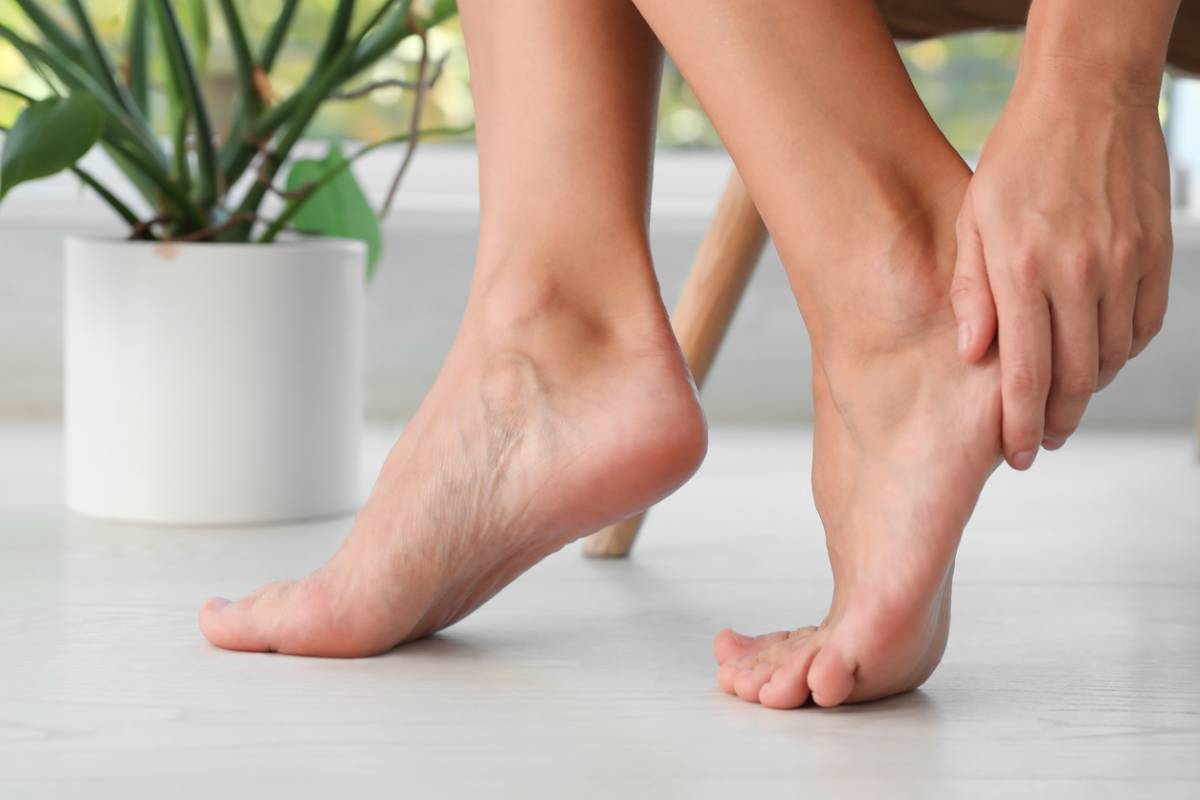Heel pain is a common issue that can impact your daily life and mobility. Research has shown that nearly 80% of adults experience foot-related issues at some point in their life. The most common issue involves heel pain and heel-related issues. Issues with your heel can be extremely painful and make everyday tasks difficult. Being proactive about your foot health is critical. Below you will find how to protect against heel pain causes.
How to protect against heel pain causes
Heel pain can impact your life in a number of ways. Most importantly, it can make moving around difficult. Taking proactive steps to protect your feet can help prevent heel pain. Consider the following ways to keep your heels healthy for the long run.
Supportive Footwear:
Wearing shoes that properly fit and support your feet is key. Shoes that squeeze or rub against your heels can lead to unnecessary friction. Your shoes should also have proper arch support and enough cushion for proper shock absorption. This can help reduce strain and keep your feet pain-free.
Stretch Out:
Stretching isn’t just something you should do before your workout. In fact, stretching your calves, ankles, and feet can be really beneficial for your foot health. Regular stretching can improve flexibility and reduce the strain on your heels. Focus on stretches that revolve around your calves and Achilles tendon.
Start Slow:
If you don’t regularly exercise, start slow. This can help reduce your risk of heel pain. Each person is different so take a rest day when you need to. Work up to exercising at least 5 days a week for 30 minutes for optimal health benefits.
Weight Management:
Carrying a lot of extra weight can put excess pressure on your feet. This can especially impact your heels. Minimizing strain on your heels is key. Focusing on weight management can help with this, in addition to your overall health.
Low-Impact Activities:
High-impact exercises can be exciting and really get your heart rate up. However, focusing on low-impact activities can reduce the stress and strain on your heels. Switch up your workout routines to ensure optimal foot health. This is especially helpful if you are prone to heel pain.
Workout Technique:
Using the right technique and proper form when you work out is key. It can help reduce your risk of injury and heel pain. It can also help you maximize your workout results.
Avoid Certain Activities:
Heel pain can be exacerbated by certain activities. Avoid walking barefoot or wearing unsupportive sandals. Walking barefoot puts excess pressure on your heels. You should also avoid standing for long periods without rest. If possible, take a break at least every hour to give your feet a rest.
Heel Pain Treatment
If you experience persistent heel pain, contact the Heel Pain Institute. They have helped countless patients address their heel pain and get back to their daily life pain-free. Persistent heel pain includes heel pain that lasts more than two weeks. Additional indicators include severe pain, swelling, redness, or numbness. These symptoms are often exacerbated when you walk around. Seeking treatment right away is necessary as it can prevent further complications. Finding the underlying causes is critical to addressing the issue.
A skilled podiatrist can diagnose and treat your heel pain. A common cause of heel pain is plantar fasciitis. There are a number of treatments to address this condition. Conservative treatments can be beneficial but severe cases may require surgery. Plantar fasciitis outpatient surgery can improve your heel pain and get you back to normal in no time. Contact the team at the Heel Pain Institute to schedule an appointment today!
